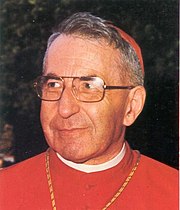Design
Design
Personality
Chart Properties
Your Cross represents the specific theme of your life. This cross embodies your unique potential & the lessons you're here to learn, providing a roadmap to fulfilling your life purpose.
We use the UTC birth time and date to do the calculations required to generate your Human Design chart.
Buy Tokens
Pay as you use, no expiry and no subscription required.Prompt Ideas
Get inspired with some epic prompt ideas.John McCain's Biography
American politician, a Republican Senator from Arizona from 1987 to 2018, the unsuccessful rival of George W. Bush for the GOP nomination for President in 2000, and the Republican nominee for President in the 2008 election, which he lost to Barack Obama.
With a conservative voting record, he made his name in part by pounding his head against the wall of campaign-finance reform and by showing his disdain of “pork barrel spending.” McCain was seen as an expert on foreign and military affairs. His campaigns were often about character, an old-fashioned belief in honor that made him trustworthy, even to those who disagreed with some of his policies. McCain had always been a staunch conservative – pro-life, pro-gun, anti-tax, anti-regulation. By age 40 he had already served as a naval aviator in the Vietnam war and had spent 5 1/2 years of hell as a POW. On 26 October 1967 he had been shot down on a mission over Hanoi, breaking both arms and legs. After solitary confinement, he was transferred to a cell with 50 other prisoners. As the son of Commander in Chief of the Pacific Fleet during the war, he had turned down paternal sponsorship, resisting pressure from his North Vietnamese captors to go free because his preferential treatment would demoralize the troops. On 17 March 1973, he was turned over to American authorities. In 1977 McCain was promoted to Captain and reassigned to the Dept of Navy’s Office of Legislative affairs. He retired from the Navy in 1981 and entered politics, winning the first of two terms in the House of Representatives in 1982. In 1986 he was elected to the Senate to succeed Goldwater. In September 1999, he launched a book tour promoting Faith of my Fathers, a three-generational bio of his, his dad’s and grand-dad’s, both admirals, with the lessons of honor and patriotism that they’d taught him.
On 3 July 1965 he married Carol, adopting her two sons, Douglas and Andrew; they had a daughter together, Sidney Ann. After their 1980 divorce, he married former medical missionary, 18-year-younger Cindy Hensley, who would become a wealthy heiress. Together they had three children, Meghan, Jack, and Jimmy and adopted Bridget, a Bangladeshi chlld from Mother Teresa’s orphanage.
With a capacity for enthusiasm and his care for the underdog, McCain’s belief that character trumps ideology and that hard work is a winning tactic proved accurate when he swept the New Hampshire primaries on 8 February 2000. Nonetheless, his opponent, George W. Bush, was nominated the Republican candidate for the presidential race. In mid-August 2000, McCain was found to have two skin cancers, diagnosed as melanoma. On 19 August 2000 he had a biopsy on the lesion near his temple along with tests of his lymph nodes to determine whether the cancer has spread. He had a similar lesion removed from his shoulder in 1993. On 30 August 2001, he underwent the surgical procedure for an enlarged prostate. On 2 February 2003, at a fund-raiser in Phoenix, he announced his intention to run for a fourth Senate term in 2004. The move ruled out a presidential run for the 2004 election. In early spring 2004, political pundits proposed that John Kerry choose Senator McCain as his running mate. In an appearance on Meet the Press, which aired on 11 April 2004, McCain emphatically answered “No, no, no,” to the question about the possibility of his being John Kerry’s Vice President, adding jokingly, “What part of ‘no’ don’t you understand?” McCain maintained that he would not be anyone’s Vice President and gave three reasons: he felt he could be more effective in his present Senate seat, he would not leave the Republican Party, and he was supporting Bush in the 2004 election.
His new book, Why Courage Matters: The Way to a Braver Life, was released in April 2004. On 12 April 2004, his wife Cindy suffered a minor stroke and was hospitalized for four days. McCain was re-elected to the Senate on 2 November 2004. On 28 February 2007, while a guest on the Late Show with David Letterman, McCain announced his intention to seek the Republican Party nomination for President. He added that he will make a formal announcement of his candidacy in April. He met and surpassed the number of delegate votes to win his party’s nomination for President on 4 March 2008. On 4 September 2008 he accepted his party’s nomination at about 9:15 PM CDT in St. Paul, Minnesota (time by observation). After a grueling race, he lost the election on 4 November 2008 to Barack Obama. McCain gave a gracious concession speech at approximately 9:15 PM MST (11:15 PM EST) in Phoenix, Arizona.
By 2013, he had become a key figure in the Senate for negotiating deals on certain issues in an otherwise partisan environment. In 2015, McCain became Chairman of the Senate Armed Services Committee. He was diagnosed with brain cancer in July 2017; following the diagnosis, he took a reduced role in the Senate. McCain’s family announced on 24 August 2018, that he would no longer seek further treatment for his cancer to prolong his life; he died the next day at 4:28 pm, his wife and family by his side at his Phoeniz, Arizona home, at the age of 81, four days before his 82nd birthday.
Link to Wikipedia biography
Link to Astrodienst discussion forum
John McCain
Your Cross represents the specific theme of your life. This cross embodies your unique potential & the lessons you're here to learn, providing a roadmap to fulfilling your life purpose.
We use the UTC birth time and date to do the calculations required to generate your Human Design chart.
Prompt Ideas
Get inspired with some epic prompt ideas.

Pope John Paul I
4/6 Emotional - Solar Plexus Manifesting GeneratorMarguerite Young
4/6 Emotional - Solar Plexus Manifesting Generator

Davey Williams
3/5 Splenic ProjectorDolores Marie Della-Penna
5/1 Splenic ProjectorJeremy Steele
3/5 Emotional - Solar Plexus Manifesting Generator





